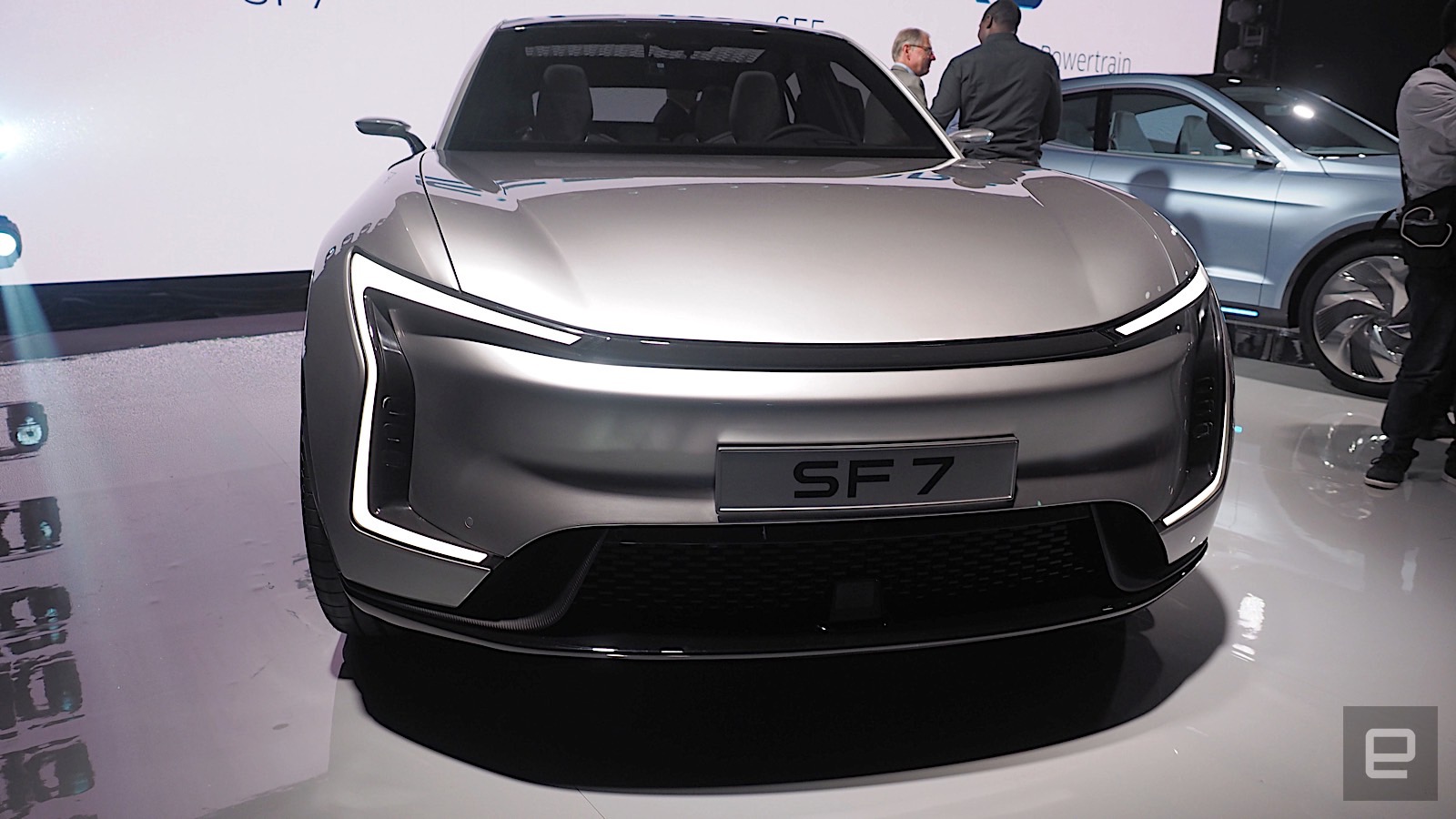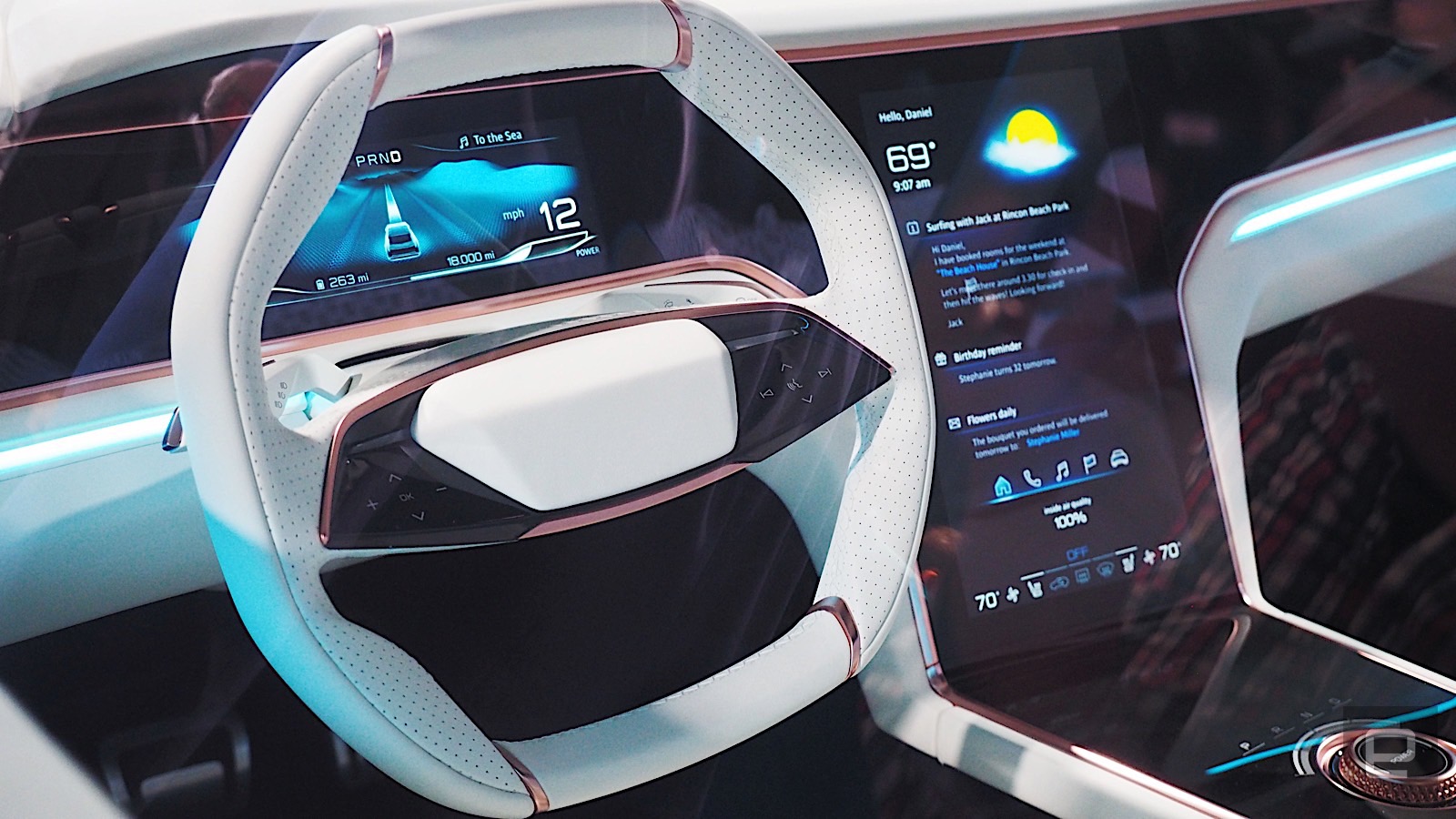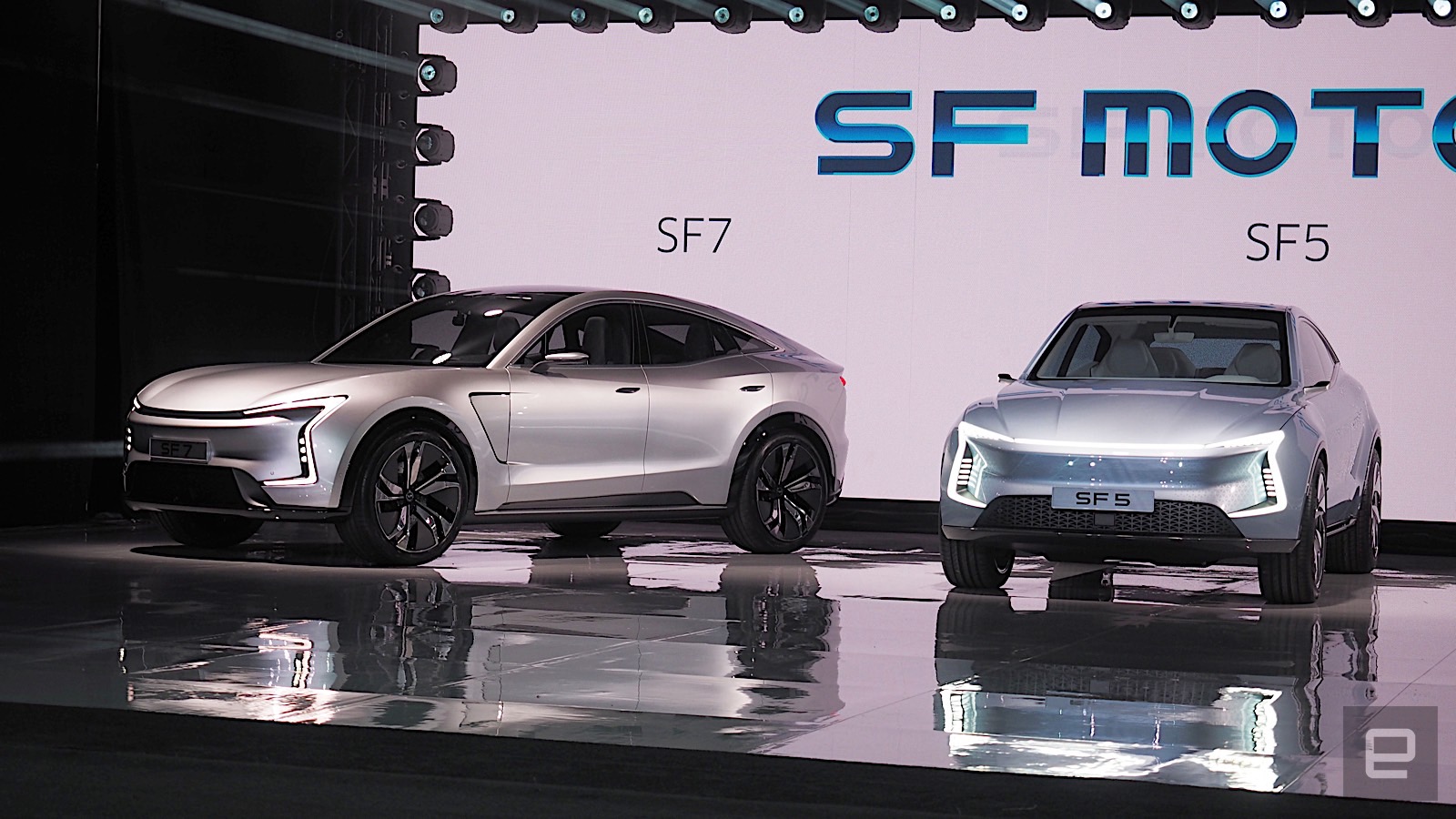While much of the automotive world is focused on the New York Auto Show, a small car startup has unveiled its first-ever vehicles on the other side of the country in Santa Clara, California. SF Motors, the US arm of Chinese company Sokon, has just announced two cars -- the SF5 and the SF7 -- as part of a whole new line of electric vehicles. The SF5 is a medium-sized crossover SUV, and the SF7 is a full-size crossover. The SF5 will be available for pre-order by the end of this year and will ship in 2019.
Both vehicles boast a proprietary powertrain that promises 1,000 horsepower and the ability to accelerate to 60 miles per hour in under three seconds. They utilize a LiDAR system for adverse weather, road conditions and more. According to SF Motors, it also developed a "range-extension platform" that helps to extend the driving range of the vehicles thanks to a "high-power onboard generator."
Interestingly, SF Motors also states that it developed its own proprietary battery cells that apparently have a range of more than 300 miles (500 km) per charge. It incorporates a so-called advanced Battery Management System, liquid-cool thermal management and "unique mechanical structures." And thanks to the acquisition of InEvit, a battery module startup last year, SF Motors is also working on a next-gen battery module system that directly integrates into the vehicle chassis.
Gallery: SF Motors new EVs (press shots) | 11 Photos
And once those batteries are spent, they don't need to be tossed away. SF Motors is also proposing a battery recycling solution whereby they can find second use in homes and offices.
We attended the car unveiling in Santa Clara but we weren't given a chance to get inside the vehicles themselves. Still, the cars do look pretty great up close. They're quite large and roomy as you might expect SUVs to be. I was especially enamored by the large touchscreen instrument cluster and unique head's up display. I love that all the controls, as well as the speedometer, are within easy view. An SF Motors spokesperson said they were designed to be in a straight vertical line between your eyes and the road, for less distraction.

Sokon is a well-known maker of vans, trucks and sports utility vehicles in China, but none of them are EVs. A couple of years ago, the company decided to launch a company in the US dedicated to EVs and autonomous vehicles, which is how SF Motors was born. In just two years, SF Motors has made significant strides in creating its first car. It set up its HQ in Santa Clara, California, a research and development center in Ann Arbor, Michigan, and now has seven R&D facilities in the US, China, Germany plus an upcoming one in Japan.
Thanks to the backing of a large company like Sokon, SF Motors is able to make its own investments. As mentioned above, In 2017, it paid $33 million to acquire InEvit, a battery module startup started by Martin Eberhard, whom you might recognize as one of the original co-founders of Tesla. SF Motor had even hired Eberhard as a consultant prior to the acquisition. Now, he serves as SF Motors' chief innovation officer.
SF Motors also seems well-poised to make a serious run at vehicle production. It purchased the AM General Commercial Assembly Plant in Mishawaka, Indiana last year, which was previously used to make vehicles from the likes of Mercedes-Benz and Hummer. It kept around 400 or so employees from the factory and will apparently be the only pure EV company to have manufacturing facilities in both the US and China.

SF Motors isn't just about EVs; it's interested in autonomous tech as well. It just started self-driving tests in California, Michigan and China. The cars will also have "protective autonomy" -- basically Level 3 autonomy -- which are cars that can handle most driving tasks with "limited input" from humans. According to SF Motors, this technology uses deep neural network-based computer vision as well as LiDAR sensory perception. With all of that in mind, SF Motors hopes to get their "protective autonomy" vehicles on public roads by 2020.
As flashy as today's reveal is, there are still a lot of unanswered questions. We would've loved to get a better look and feel of the car's interior, as well as how it drives. Plus, we still don't know how much it costs, which will be an important consideration for most potential customers.
"From the creation of our 'protective autonomy' technology to our e-powertrain and battery achievements, we are on our way to becoming a global OEM and a vertical integrator," said SF Motors CTO, Yifan Tang, in a statement. "And, as much as we thrive on developing new ideas, our technology is meant for the roads, not the lab."









No comments:
Post a Comment